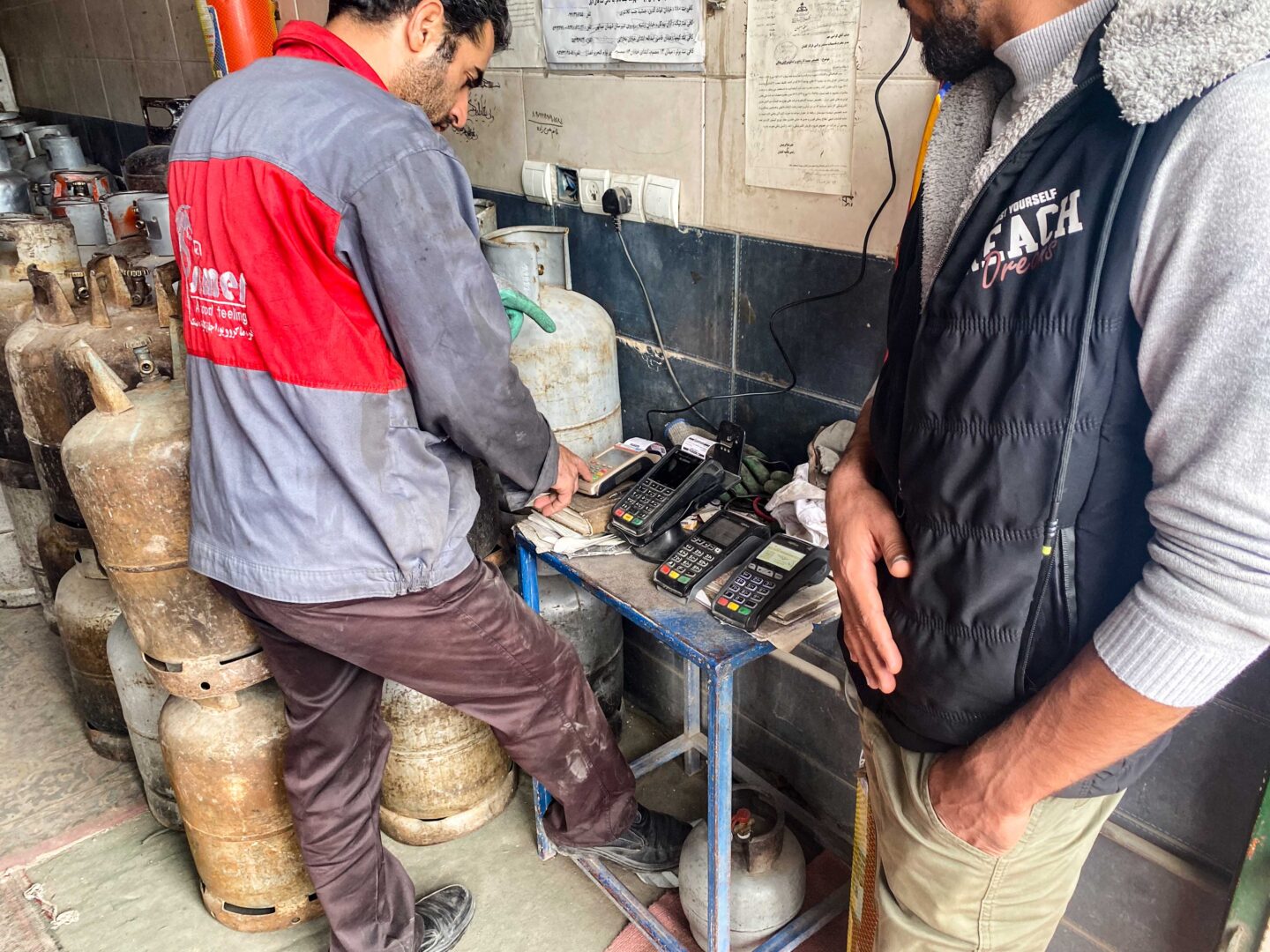
Längerer Beitrag – schneller Überblick:
Iran is a really exciting and interesting country for us. Somehow everything is different here. We can't stop being amazed. We smile, laugh, are irritated and sometimes even desperate. But the best thing is that no matter what, there is always someone there to ask if we need help or just a cup of tea.
Money
We already knew before entering Iran that western credit cards would not work here. That's why we simply took dollars (euros would also have worked) in cash. You don't need much here, travelling costs are really cheap. At the beginning we exchanged something like 100 dollars and now carry a huge bag full of rial and toman around with us. That's right, there are two currencies. Rial and toman. We're not quite sure why. But never mind, we simply ask what they mean and then pay. The good thing is: 10 riyals are 1 toman, so it's easy to do the maths. But here it's not 10 riyals, it's tens of thousands, hundreds of thousands or millions. For example, we paid 1.5 million rials for the motorway toll, which is around 2 to 3 dollars (depending on the exchange rate). Museums and mosques, for example, currently (2024) cost one million riyals per person. According to the official bank exchange rate, that's around CHF 2.10 (or euros, which is similar).
Oh yes, exchange rates. They are different in banks and bureaux de change than in jewellery shops and on the street. And they are constantly changing. So it's not so easy to understand money here. But after two or three weeks you slowly get the hang of it.
And if you want to make things a little easier for yourself, you can get an Iranian tourist credit card in advance (allow a week or two), deposit money on it (or have it deposited) and look into the astonished eyes of the merchants when you pay with the card instead of cash. Because very few people expect that from foreigners. And the best thing is that you can pay by card almost everywhere. The tea at the roadside, the tolls, the small souvenirs at the bazaar. Every trader has a card reader. You always pay with riyals here.
Speaking of credit cards: It is perfectly normal to give the retailer your pin number. Loud and clear. We hold the card over the counter, the merchant swipes it, asks for the "password", Gerd says it loud and clear and everyone agrees. In a café in Tabriz, the waitress even knew our number on our second visit. We slowly got used to it. In the beginning, we simply took the word PIN = Personal Identification Number far too seriously. How silly we are.
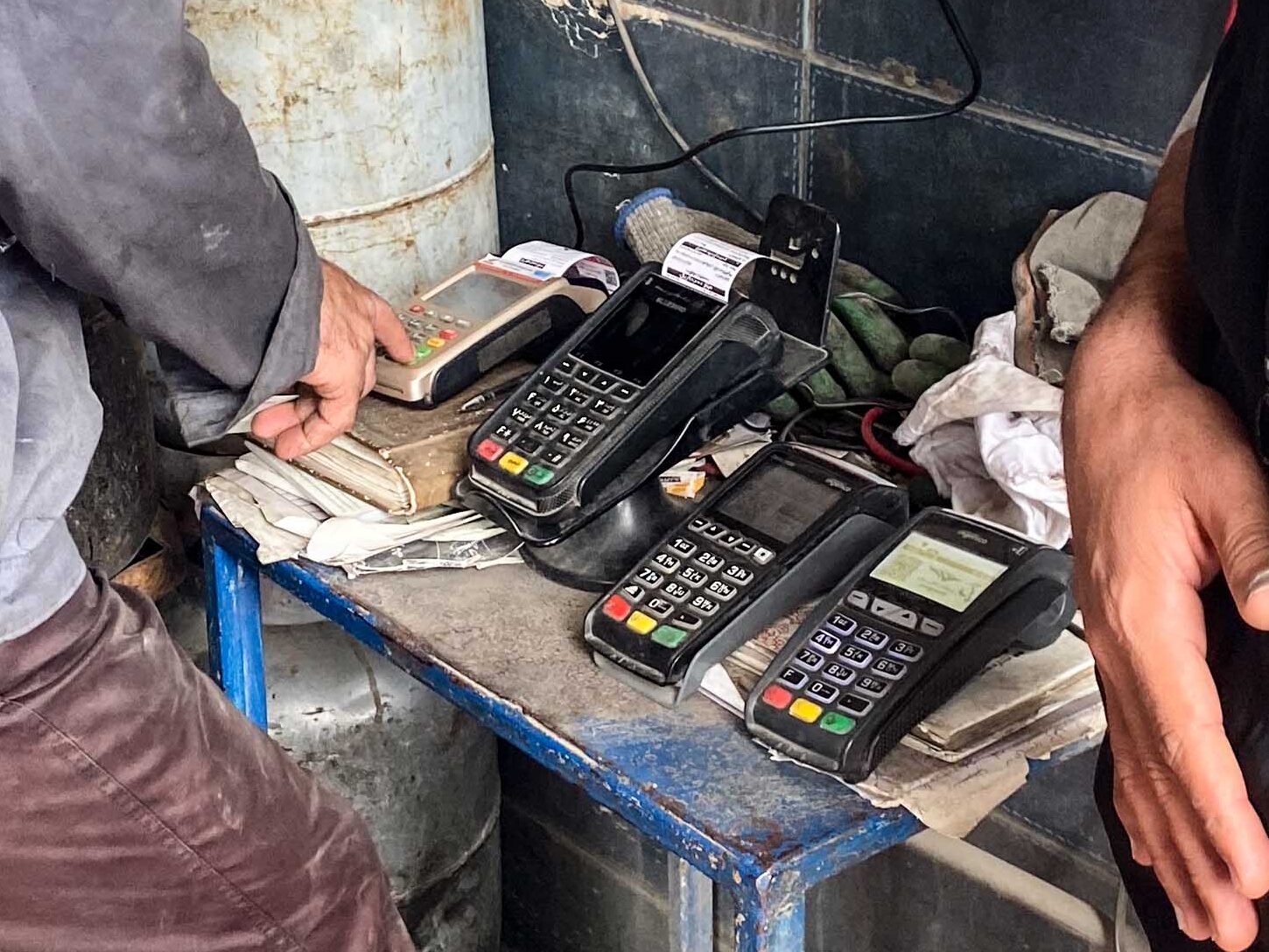
Internet
There are good providers, we opted for IranCell. And we bought a SIM card (with the help of a local) that we can top up at any time. The SIM card itself, including 300 GB, cost us around 35 euros/francs. We put this SIM card in our WLan box and connect our mobile phones and computers via WLan.
We have heard that Iran blocks foreign devices after 30 days. Mostly the smartphones. It remains to be seen whether this also applies to routers like the ones we use. So far, the Böxli is still working after more than a month. However, we still have a second, old replacement box with us in case it locks up. Or you can buy an Iranian box for this case. So it remains exciting. You can also have your phone unlocked. We don't know how time-consuming this is or how much it will cost. As we won't be staying for years, that's fine for us.
The internet itself is ok, not super fast, but not slow either. For certain websites or services (e.g. some messengers) it is an advantage to have one or more different VPNs.
We have been using VPN for everything for years and have always needed it for our work. This has nothing to do with Iran, but with the security of our data and that of our customers.
Many German-language websites are not accessible without a VPN. They are probably blocked either by Iran or by the German/Swiss provider. We honestly don't know.
Our standard VPN provider Nord-VPN (which we have also been using for business purposes for years) does not work for us at all. Proton and Surfshark alternate in terms of availability, which means we can stay in contact with our customers.
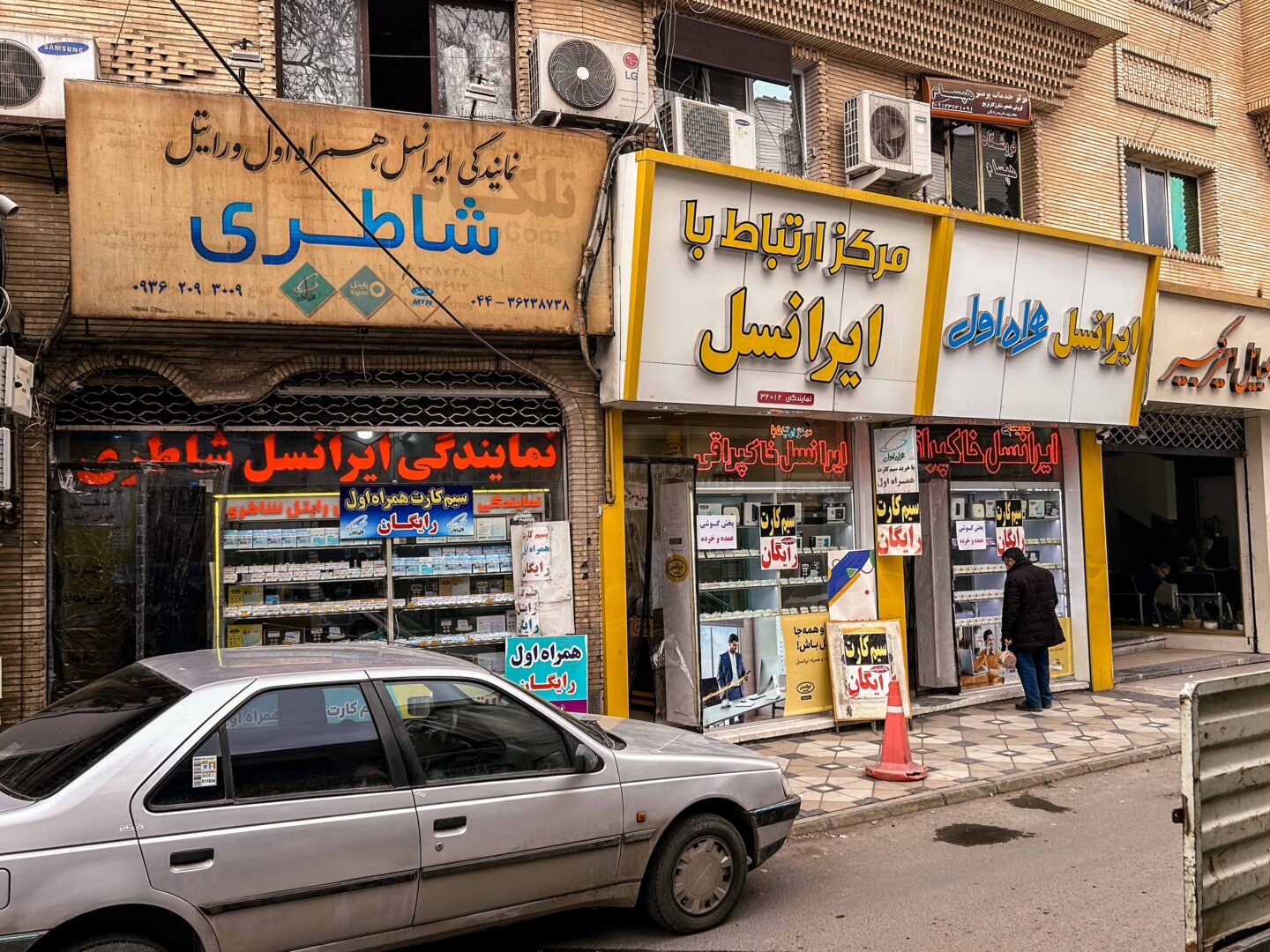
Language & writing
Iran is a multilingual state. The main language is Persian. And many people speak English. Good to very good. And everyone knows Google Translate. Even in the most remote village, people know immediately what to do when I point my phone in the direction of the person I'm talking to. They immediately speak into it and read out the translation. It works like a charm.
Persian itself sounds very beautiful and should not be confused with Arabic. The letters look the same or similar, but we can't read them. The letters are written and read from right to left, the numbers from left to right. We can already read the numbers from 0 to 9 well. The roof ۸ For example, the 8 (Doht), the 9 ۹ is even and the 6 ۶ looks like the 9, but is slanted. But the digits 4 (۴ or ٤), 5 (۵ or ٥) and 6 (۶ or ٦), which can also look different again, cause confusion. And in Arabic, for example, the number ٤ is 5 instead of 4. Have we confused you? Yes? Wonderful, welcome to our own brain chaos. (Source: https://persianum.wordpress.com/persische-sprache/eins-zwei-drei-zahlen/persische-zahlen-1-bis-20-%DB%B2%DB%B0-%DB%B1/)
We practise this with the number plates on long motorway journeys. And then we compare them on price tags and receipts.
Road signs are often, but not always, written in Latin letters as well as Persian. This is particularly helpful at major junctions or on the motorway or interurban roads.
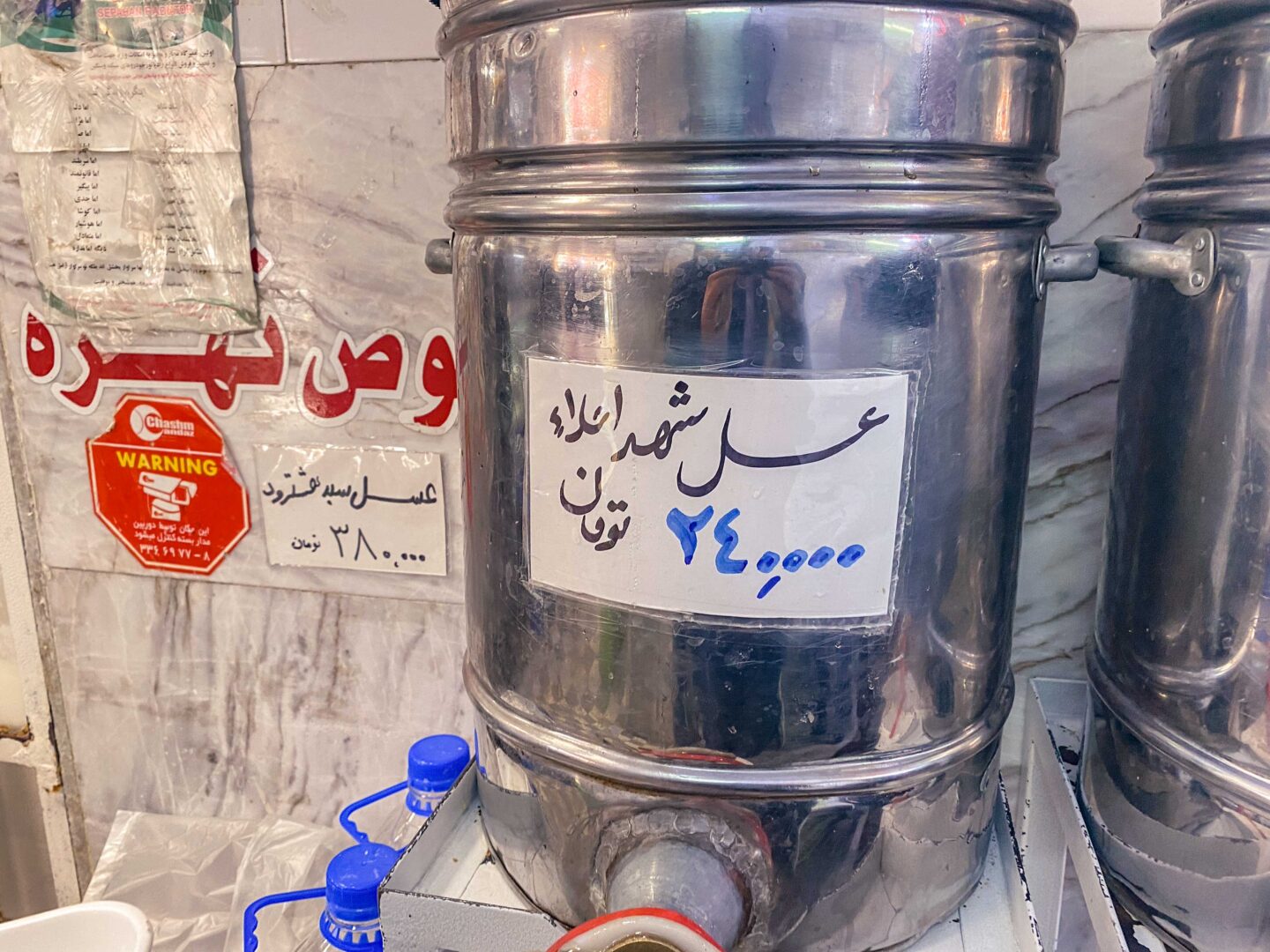
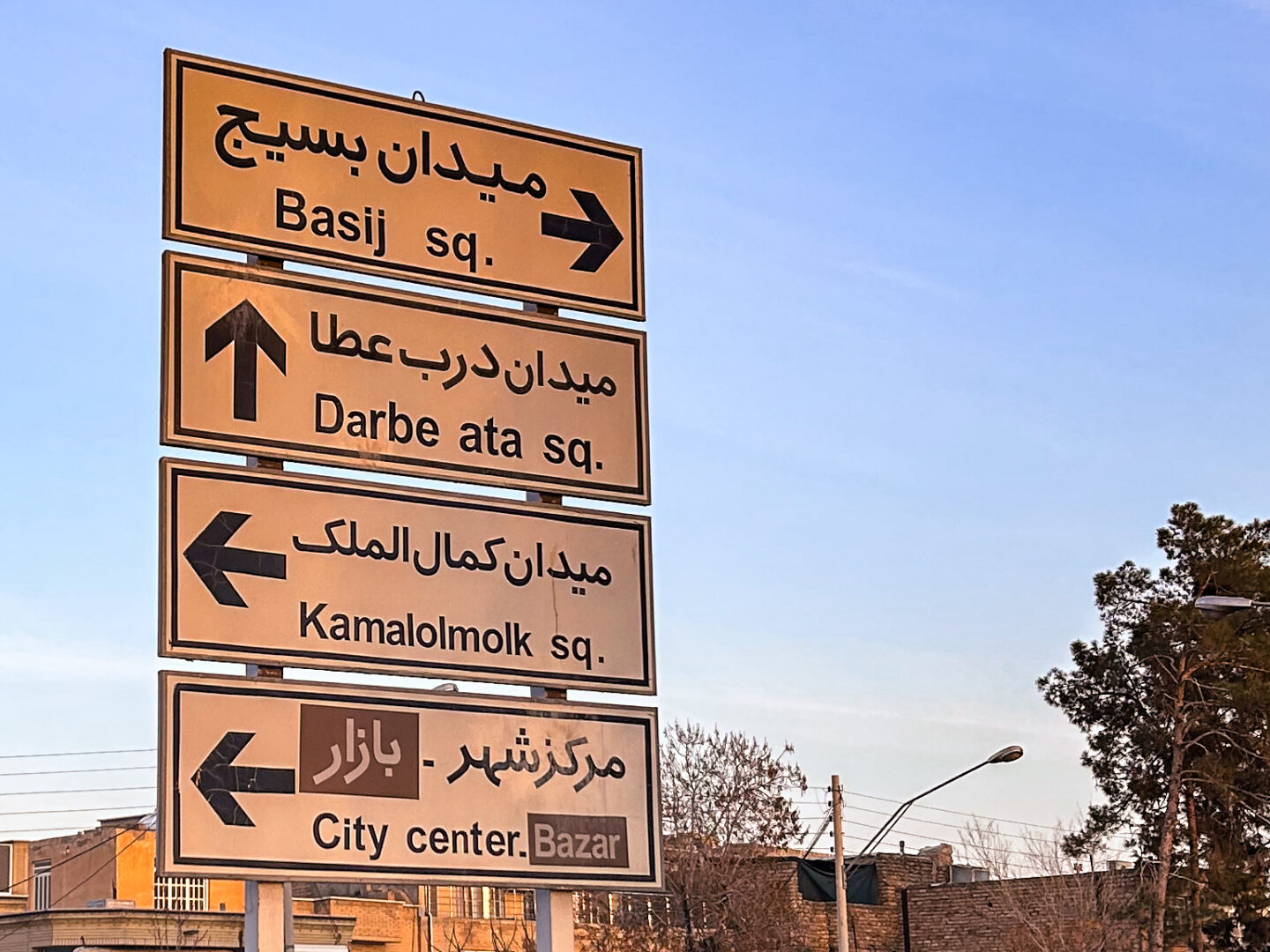
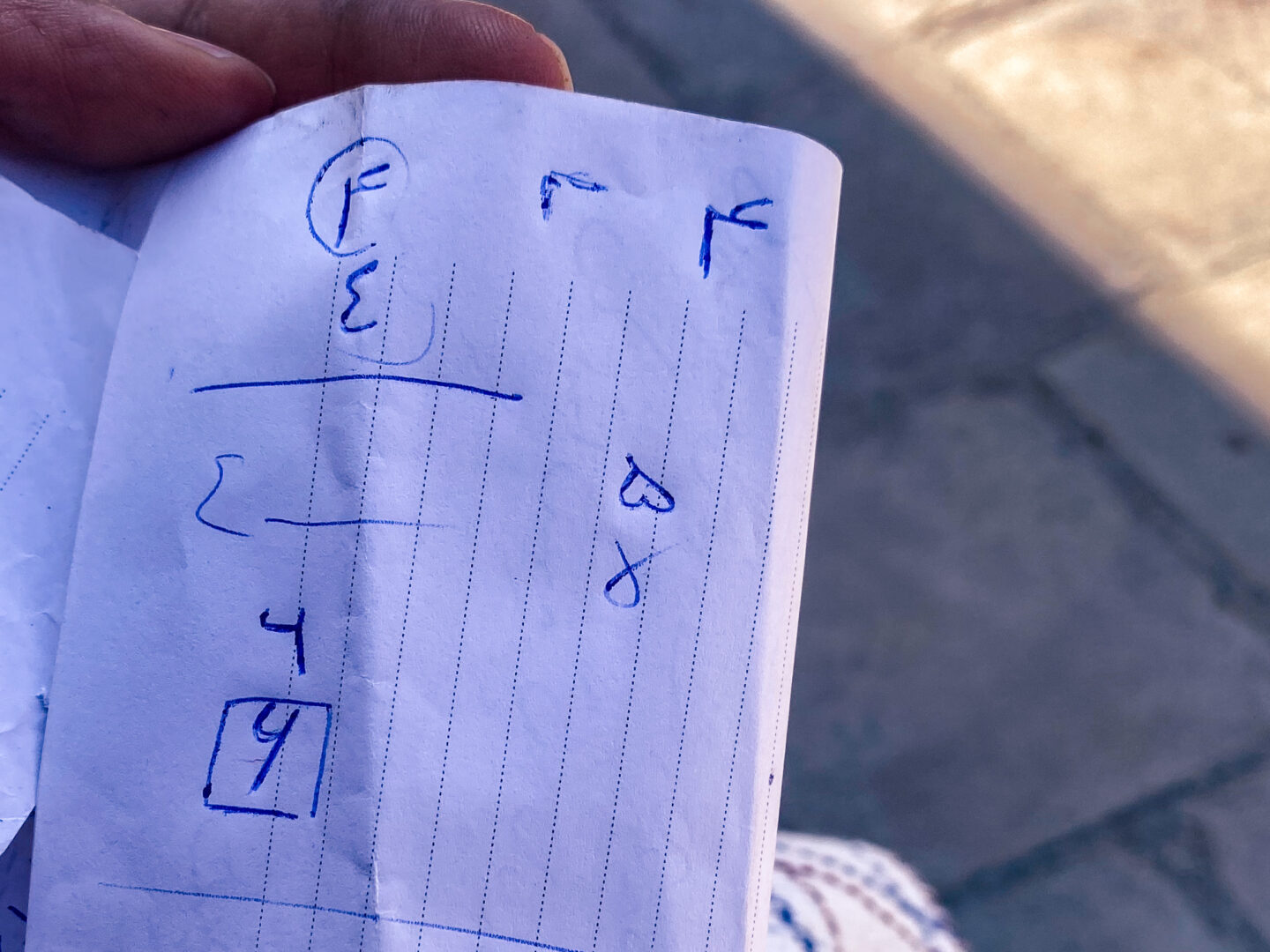
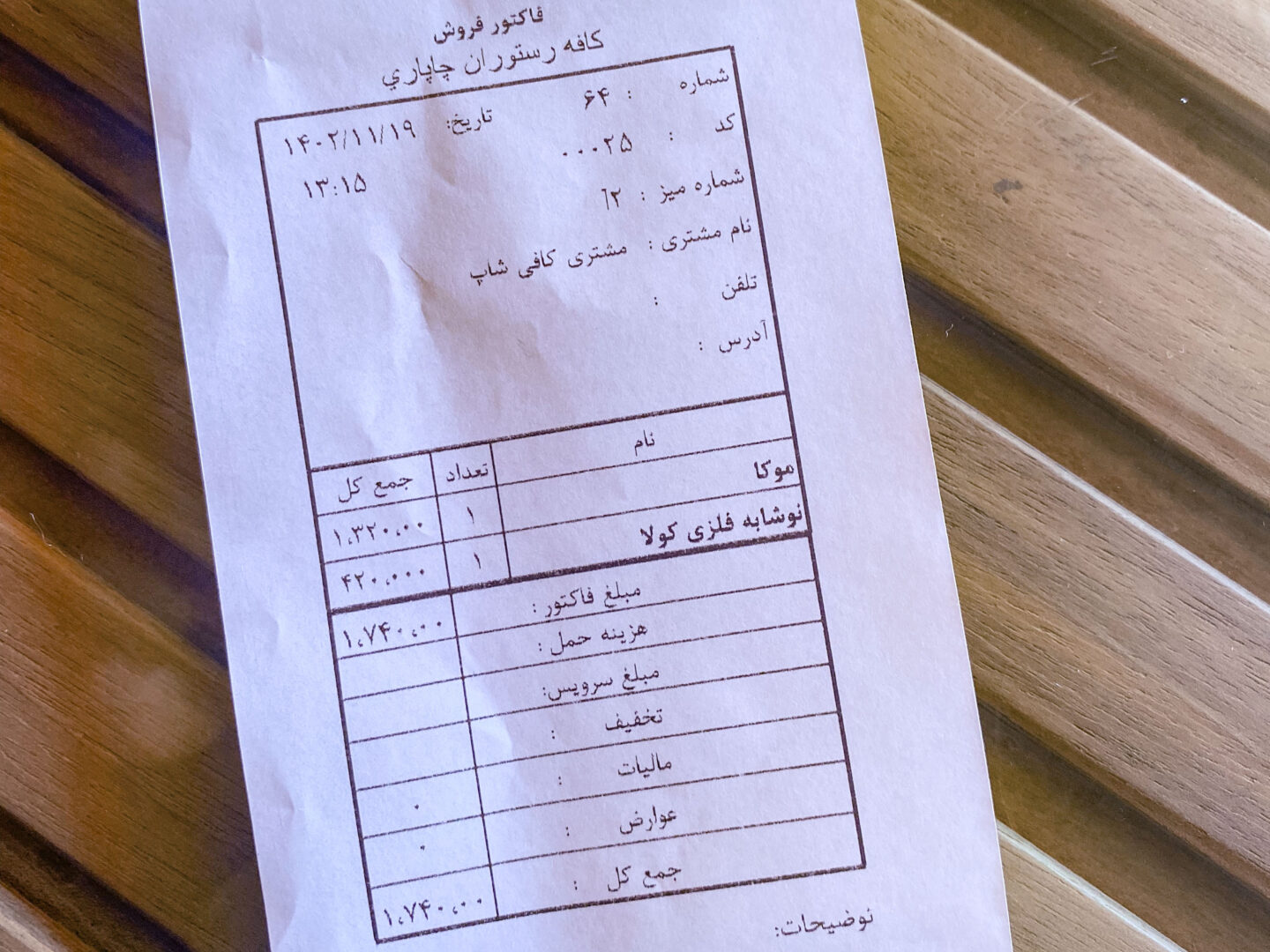
Show of hands
We realise that there are different hand signals here than we are used to. During a traffic check, for example, the police officers hold their hand up straight and move it downwards several times. We would interpret this as "Stop!". But it means: "Drive on!" The thumbs up, which we use for okay, great, very good, can lead to confusion and embarrassment, especially among the older generation. Similar to our raised middle finger.
Eye, hand and body contact
Contrary to all warnings, I make very good contact as a woman. Younger women in particular, who wear their headscarves a little looser on their heads, smile at me and invite us in. Gerd tends to be approached by men and smiled at in a friendly manner. When we realise that eye contact is not desired, we avoid it too. That feels better for us, we don't want to invade people's privacy, which may not be desirable.
Men usually only shake hands with Gerd, I am greeted politely. As a greeting, it is also customary to simply place your hand on your chest or heart and nod slightly. But once we are friends, we also hug each other goodbye. As a woman, I always wait to see how I can interpret the other person's signs. Or quite simply: we ask if we can give them a hug. The answer is usually a friendly yes and the hug is almost as intense as when we hug our own mothers or children. Full of warmth.
Toilets
Anyone who does their squats every day is in good hands in Iranian toilets. Because the toilets here are so-called squat toilets. Usually very clean. But often without toilet paper. But with a bum shower. If there is toilet paper (or you have it with you to be on the safe side), you are not allowed to flush it down the toilet, but have to throw it in the bins provided. But: This part is not new to us, it already started in Greece. And you should really stick to it, the pipe systems get blocked really quickly! And we'll be honest: we prefer to go to the loo at home, we affectionately call ourselves "home shits".
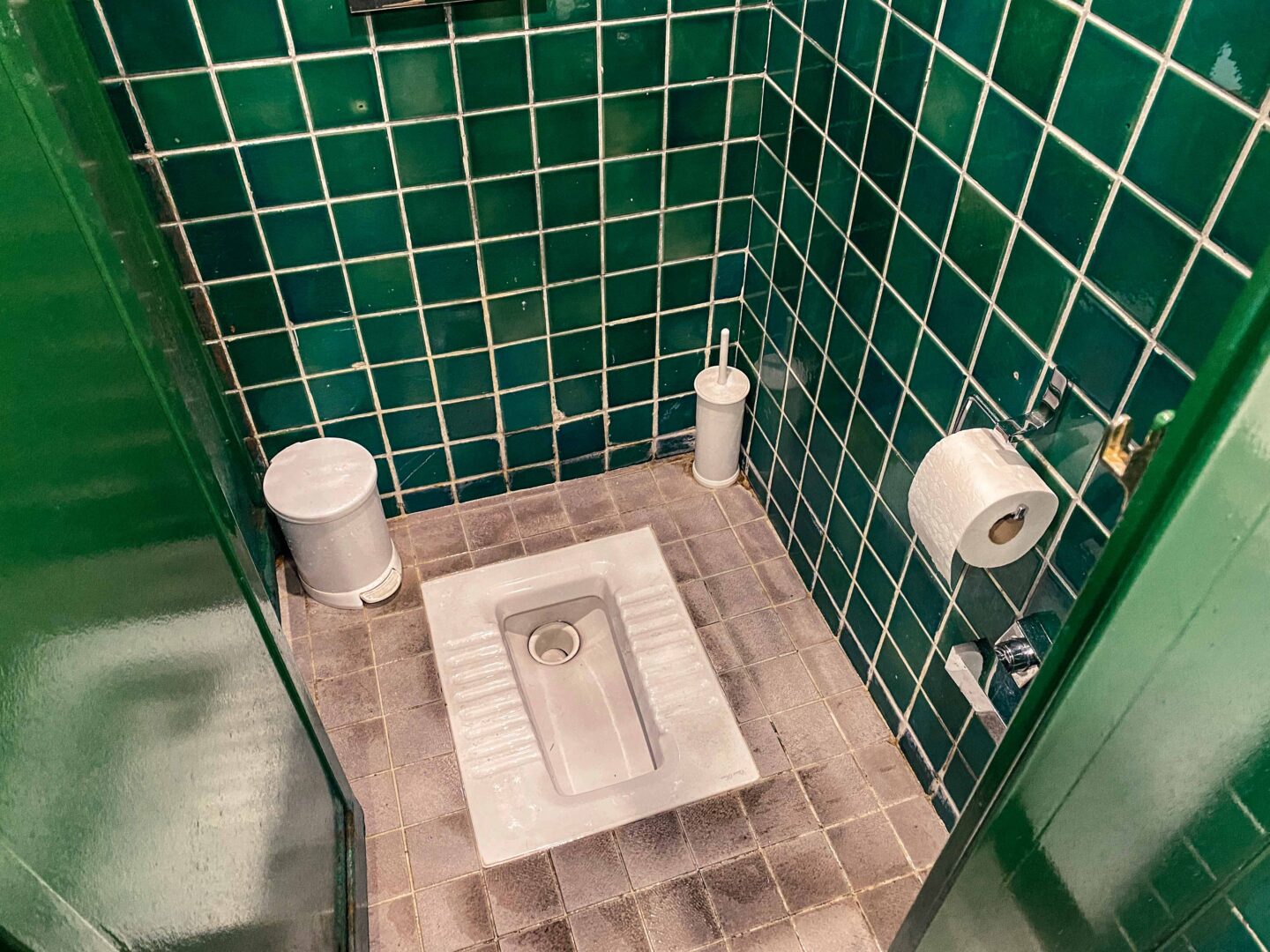
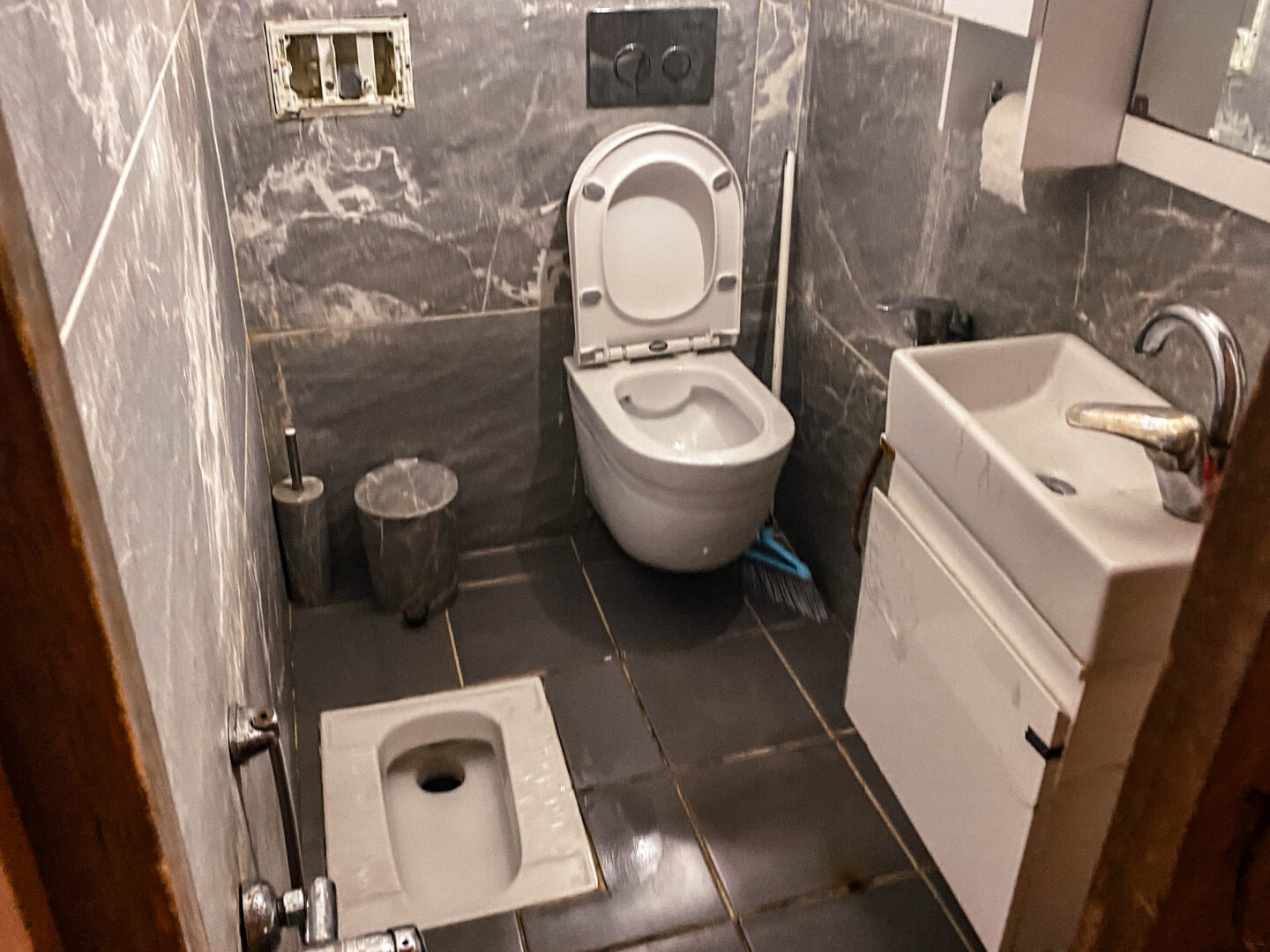
A little tip in passing
These are all just our own experiences. A very personal note and possibly different and perhaps even incomplete than other travellers may have experienced. So: experience it for yourself is the best recommendation!
There are still so many impressions that I have noted down. Next time it will be about traffic and everything that seems important, funny or remarkable about cars.
Merci for "travelling with us
We are thinking about taking another break from travelling in the summer and visiting our families in Germany and Switzerland. One of the ideas is to organise a Lecture about our long journey to the Persian Gulf to prepare. If you would like to, what would interest you the most? We will also tell stories here that don't find a place here on the blog. We're thinking of the Bern and Berlin area - simply because we have family there. But other places are also conceivable. Feel free to write to us.
Do you think our travel experiences might be of interest to others? Then you can share the Share post quietly. By e-mail or however you want to do it.
In addition, if you haven't already done so, you can use our Newsletter subscribe. Here you will receive all our experiences in your mailbox whenever we publish something new or once a week on Fridays: live-pur.ch/newsletter
We are also very happy to hear your views, your tips or your questions. Just comment on the post!